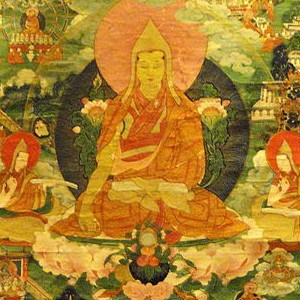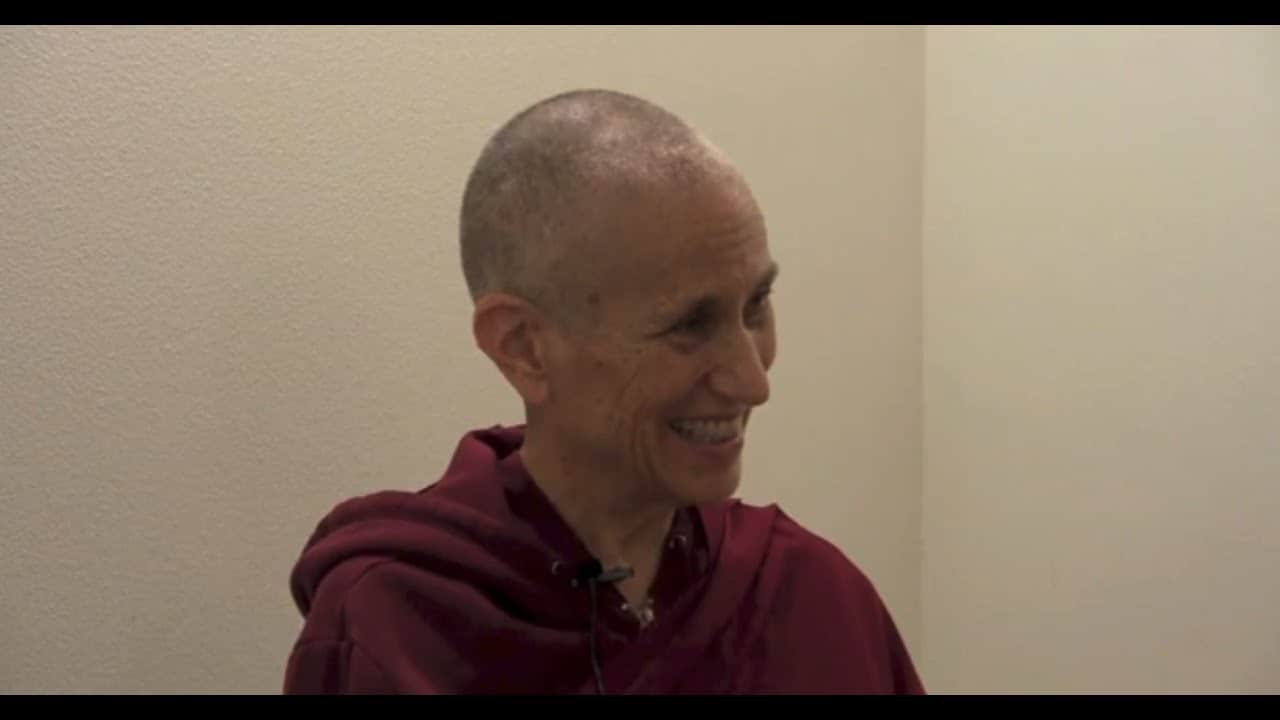We are all Michael Brown and Darren Wilson
On August 9, 2014, Michael Brown, an unarmed, African-American 18-year-old, was fatally shot by Darren Wilson, a police officer, in Ferguson, Missouri. On November 24, the grand jury stated that there would be no indictment of Officer Wilson.
- Looking at the situation from different perspectives
- The causes and conditions that brought Darren Wilson and Michael Brown together
- The role of ego, honor, the “conceit of I”
Last night the grand jury gave its conclusion about the Michael Brown case and they decided that no indictment. In other words, there was not probable cause to even have a trial for Darren Wilson for the death of Michael Brown.
I was—how to describe that? Disappointed is not strong enough of a word. Maybe outraged. Outraged but not angry. You know, really looking at the situation from many different perspectives, part of it karmic, part of it other factors.
I think—and nobody’s brought this up—but I think the police are especially on edge nowadays. Even just within the last week or two there have been several African-American men or boys who were unarmed who have been killed by police. One in Staten Island with a choke-hold. There was another person in—was it Brooklyn? Somewhere else in New York. He was shot in a stairwell. He was just coming out and walking somewhere with his girlfriend and the police shot him. There was a 12-year-old boy in Cleveland who had a fake gun that apparently looked like a real gun and was waving it around in a park and an officer shot him and he died the next day. So all of these have been black males. There’s just a little bit too much in common here to write off racism, for the people who want to write off racism. I don’t think you can do it.
But, I do think that the police are especially on edge because so many people in society are armed and so they automatically, when something happens, suspect whoever they’re dealing with of being armed. And I put this on the NRA, actually. I think the NRA has a big role to play in these kinds of situations where the police kill unarmed people, because the police suspect everybody of being armed nowadays. Even when they’re not. Regardless of whether you’re black or white or purple.
Then looking at what happened. Michael Brown and Darren Wilson were total strangers that morning. It was just a morning like any other morning. You know, how we wake up in the morning and it’s a day like any other day. And how one small thing you do in your life can totally change everything in a way that can never be retracted. Sometimes we do big things in our lives that don’t change very much. But sometimes we do small things that change everything.
I’m thinking of Michael going in to this store. And it all started— He took some cigarillos. (I don’t even know what cigarillos are. Small cigars.) So how much does that cost? It all started out over a couple of dollars worth of things. And it wound up in one person being dead. And Darren Wilson’s whole life— He will not live a regular life because he has this on his mind. Everywhere he goes people will know his name and will react to him in a certain way. So, small things. It seems like a small detail, taking some cigarillos. But it affects, it boomerangs, and all these other causes and conditions come together … and pow!
So, if you look, karmically, Michael dying that day… Seems to me there was what we call untimely karma from some kind of action created in the past that was strong enough that the causes and conditions came together for it to ripen in his being killed. But the same thing can be said of Darren Wilson. Because he will—maybe not at this moment, but during his life—experience a lot of negative results because of this. Maybe [he won’t be] killed or imprisoned, but who knows what’s going to happen. Again, some kind of past karma coming and ripening in that.
And then also, it’s not just past karma. We can’t say it’s fated. It also had to do with the mental states that people were in at that time. And if you think how in our lives sometimes conflicts with people start out over something small and then pretty soon it’s huge. You’ve all heard me give my peanut butter story, and then at the end of the conversation the couple’s getting divorced because one of them forgot to buy peanut butter. So it’s the same kind of thing. There are a few cigarillos, and then, “You disrespected me because you didn’t walk to the side of the road when I told you to.” And then it’s, “Well, who are you to tell me to move to the side of the road?” And then there’s this, and that, back and forth, and pretty soon nobody cares about the cigarillos. Everybody cares about their own honor. It becomes a contest of ego, doesn’t it? It’s totally ego. Who is going to prevail in this one?
Because I was thinking, from the side of the police… Because Michael, at one point, he ran away. What would have happened if he had just let him run? What would have happened? Well he’s a cop. He can’t let somebody do that. There’s no way. I mean, an ordinary citizen, if you scuffle with somebody or whatever, and then they leave, you very easily, you let them go and forget about it. But a cop? That comes up. “I’m a police officer. I can’t let that happen. This is my duty.” And it becomes a completely huge thing.
And probably from Michael Brown’s side, too. It’s like, “Who is this cop treating me this way?”
You can see so clearly how, when we talk about the conceit of “I,” and the “I” grasping, how this comes up and clouds people’s minds so that nobody can see the situation very clearly. And all of a sudden it gets way blown up to the point where somebody’s killed.
So think, in our lives, how often have we been involved in conflicts with people that started over something small, and then our minds just got in there and amplified, and we’re holding on, we are not going to give up, “I am going to be victorious.” And then what the outcome of that is.
So there have been people around the country who write on their shirts, “I am Michael Brown,” and other people who write, “I am Darren Wilson.” I think we’re both of them. From a Dharma viewpoint, somehow… They were both acting out of, in my mind, very similar mental states. And that same mental state exists in us. So to me the lesson is that we’ve got to get ourselves straightened out about that. And we can think, “Well, I’m only one person, getting myself straightened out isn’t such a big deal.” But Darren Wilson was one person. And Michael Brown was one person. You can see one person can make a really big deal. It can really influence a lot.
So that’s looking at it more from a karmic perspective, or a perspective of afflictions and us being in samsara. From the perspective of what is happening in this country, and are people being treated fairly? It’s a whole other issue.
And even before the decision of the jury all the police were out there with their riot gear and all their equipment, and it was saying to the public, “We’re going to have a riot tonight.” Wasn’t it? Because when the police are out there with all their equipment before anything’s ever even happened, it’s saying there’s going to be a riot, and so then of course, no matter what happened, there was going to be a riot—by one side or the other side, or both sides, or who knows what? Because you pre-plan for it. And it’s interesting in reading what the law enforcement people said about how having a lot of cops out in other areas stopped violence. But I see it, actually, in quite a different way, that when one side is prepared with their stuff, they’re sending a message out right away.
Anyway, we have a lot of work to do personally, and we have a lot of work to do in our country. We have a lot of work to do on this planet. And it all comes down to ignorance, anger, and attachment. Which is why, at the end of the day, it’s important to get out of cyclic existence and help everybody else get out, too.
View Venerable Thubten Chodron’s initial video regarding this incident.
Venerable Thubten Chodron
Venerable Chodron emphasizes the practical application of Buddha’s teachings in our daily lives and is especially skilled at explaining them in ways easily understood and practiced by Westerners. She is well known for her warm, humorous, and lucid teachings. She was ordained as a Buddhist nun in 1977 by Kyabje Ling Rinpoche in Dharamsala, India, and in 1986 she received bhikshuni (full) ordination in Taiwan. Read her full bio.


